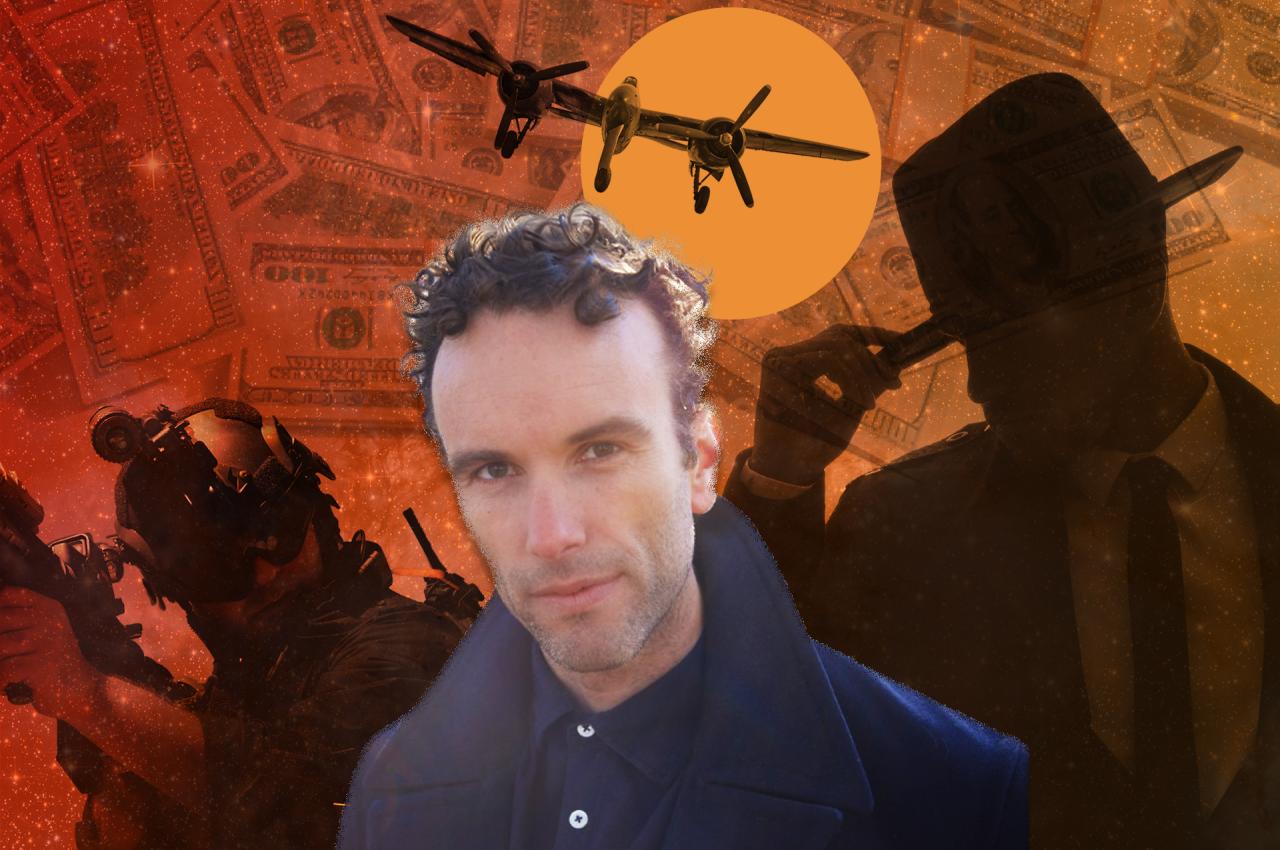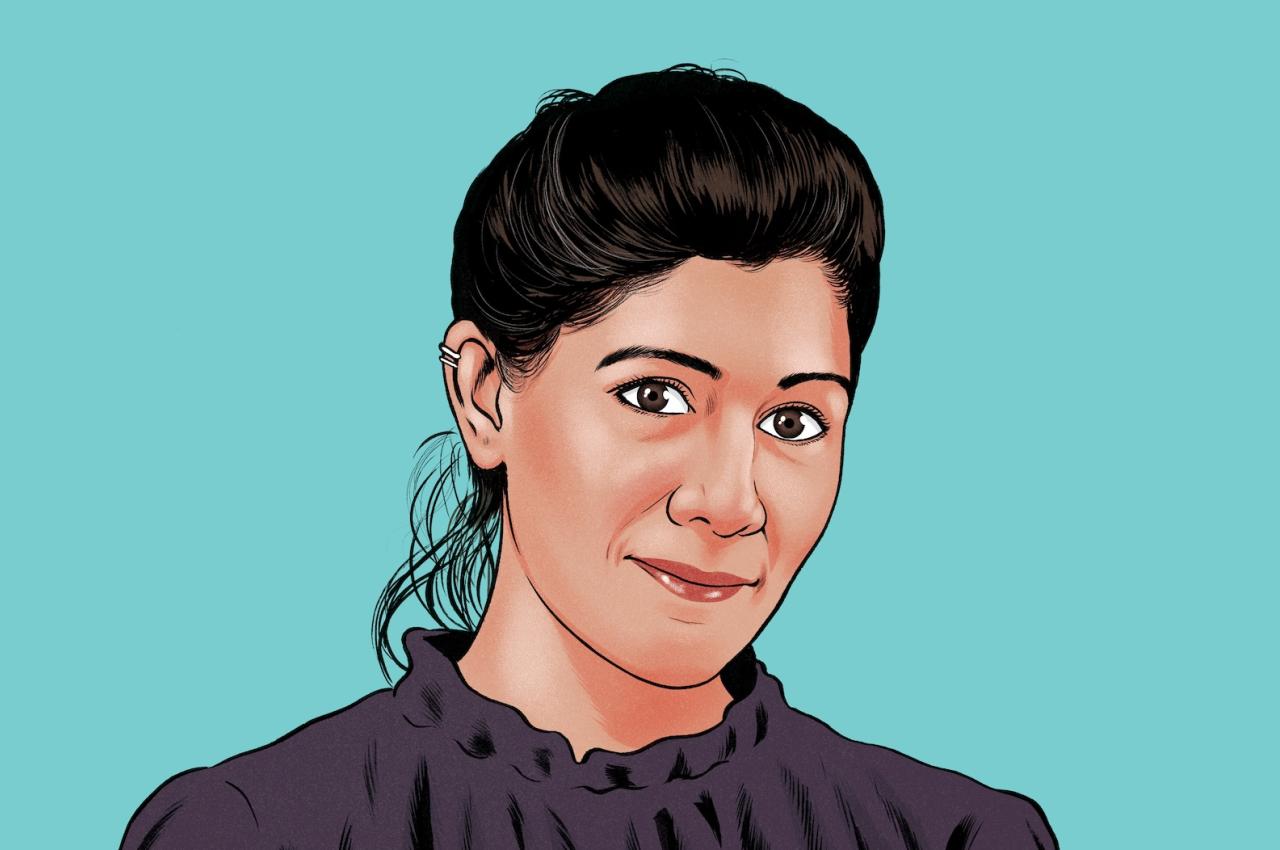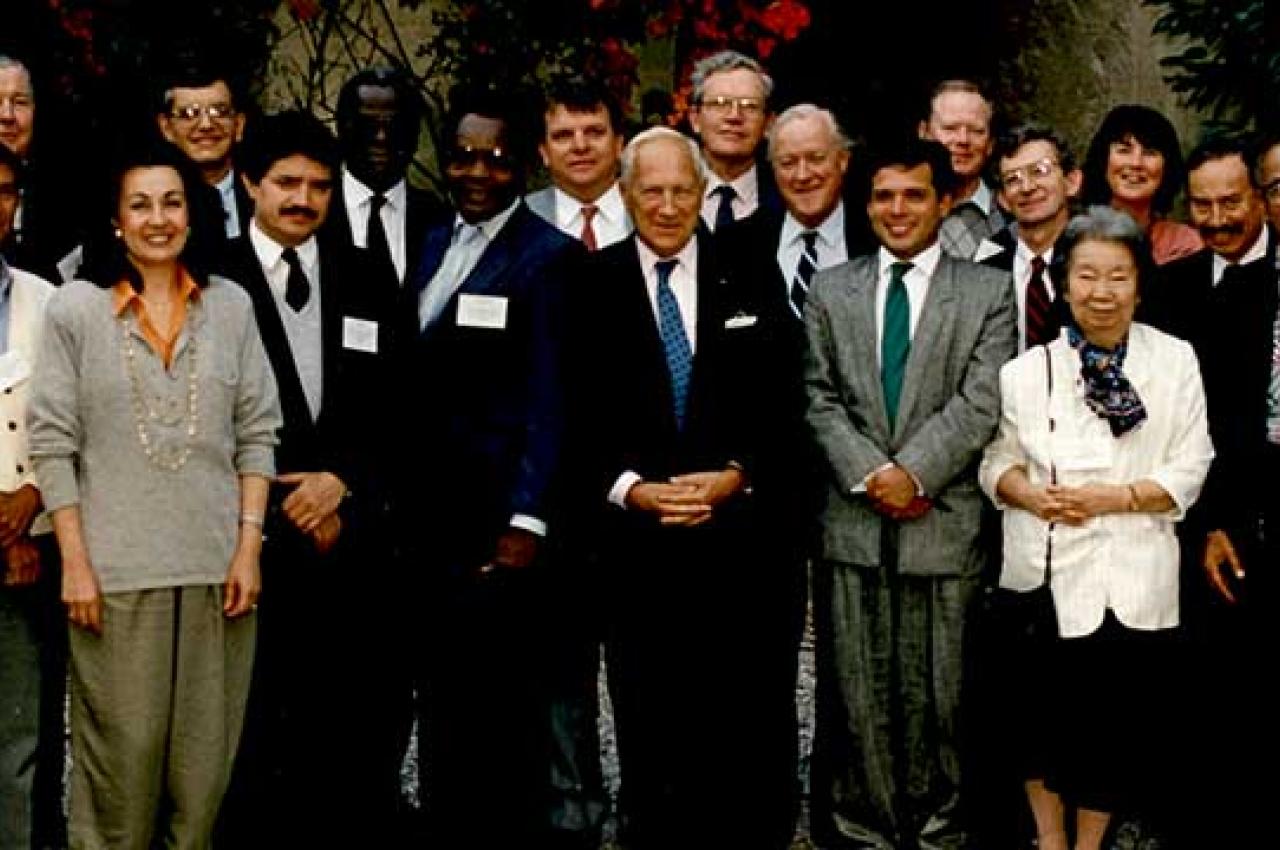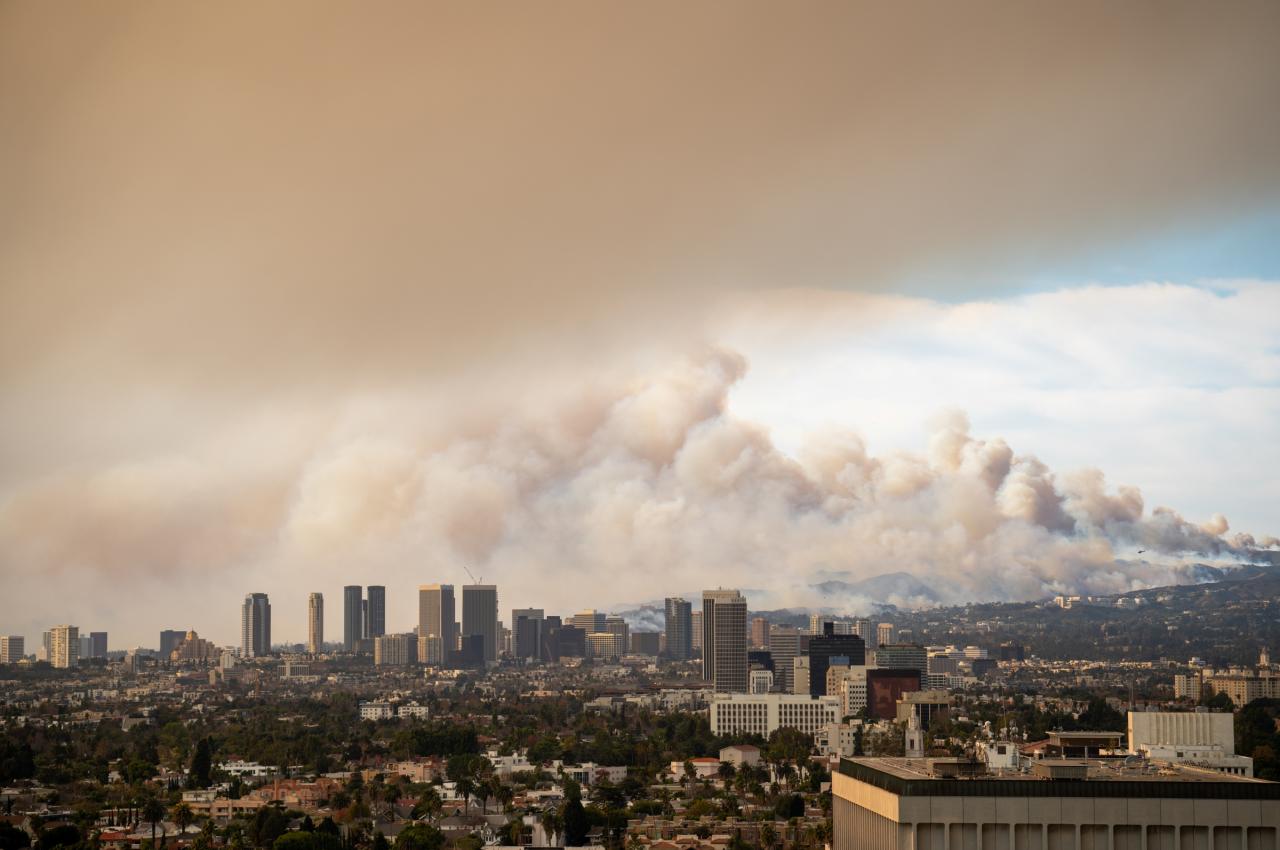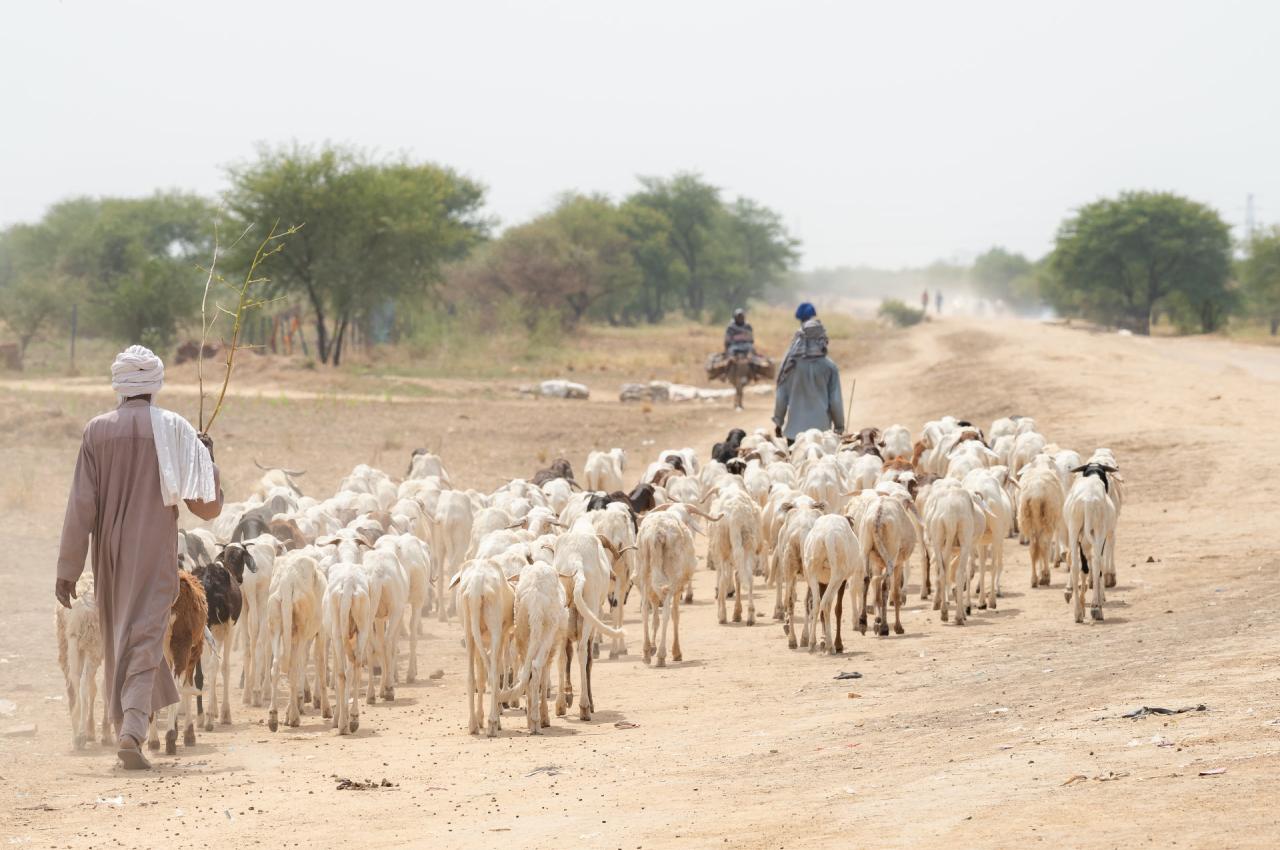New Thriller Blurs Lines Between Good Guys and Villains
Two guys named Skwerl and Cheese steal a plane. It sounds like the start of a joke, and in a way it is. Sheepdogs by Elliot Ackerman, A03, F03, is a comic caper and buddy tale that kicks off when the down-on-their luck duo accept a mysterious mission: the heist of a luxury jet from a remote African airfield. Published this month, the book is being developed as an Apple TV series.
Skwerl, part of the CIA’s elite paramilitary wing till a botched raid leads to his unceremonious dismissal, runs a rope-making business with his professional dominatrix girlfriend. He’s nicknamed after the quick, resourceful, bushy-tailed rodent (everyone knows Marines can’t spell). Cheese, a legendary Afghan pilot who flew for U.S. Special Forces and fled to America after the fall of Kabul, now works the graveyard shift at a gas station to support his pregnant wife. He’s called Big Cheese for his prowess in the cockpit.
The names reflect the humor of the world of special operations and intelligence, where a computer generates unintentionally funny pseudonyms or “pseudos” for undercover agents (Wan C. Curr, Hugh D. Mungus). Your fellows give you nicknames like Dickhead Mike, who’s punished for breaking the cardinal rule of nicknames—you can’t choose your own—in his bid to be called “Delta Mike” (as in Delta Force).
Ackerman knew from the outset that he wanted a light tone, citing as one inspiration the buddy cop film series Lethal Weapon, which comments on veterans’ struggles in a surprisingly comic way.
“Humor is a coping mechanism. I wanted to write something in this fun and funny tone because the reality is that war is too serious to take it seriously all the time,” says Ackerman, who served five tours in Iraq and Afghanistan and earned the Silver Star, Bronze Star for Valor, and Purple Heart. “When I get together with friends of mine from the wars, usually we’re telling funny old stories and joking around.”
Ackerman’s own Marine Special Operations nickname was “Cracker,” from a party where everyone teased him for his “lame white guy” dancing.
But Sheepdogs is also very much in line with Ackerman’s more somber works, recognized for their lyrical yet unflinching meditations on the personal and societal costs of war and the nature of being human. These include National Book Award finalist Dark at the Crossing, the critically acclaimed Green on Blue, and the near-future political thrillers 2034 and 2054 (co-authored with James Stavridis, F83, FG84, former admiral, NATO commander, and dean of The Fletcher School). The final book in the series with Stavridis, 2084, is slated for release in 2026.
As Skwerl and Cheese’s mission goes sideways, hijinks, silly names, and inside jokes collide with gunfights, hostage situations, narrow escapes, and questions of humanity and the legacy of violent conflict.
Chief among these is the truth that armies last longer than the wars they’re raised to fight. “We often view wars as though they are contained to the dates that they are fought. But they go on in terms of the people who fought them,” Ackerman says. “People who at one point are considered heroes can very quickly find themselves on the margins.”
That’s just what happens to Skwerl and Cheese, who struggle with trauma, alienation, and making ends meet after the war. Their respective partners share this burden and bring baggage of their own. “They all have these double lives,” Ackerman says.
In this context, crime may be perceived as less a sin than a necessity—even noble or romantic. “If you recall, Robin Hood begins when Robin of Locksley returns from the Crusades and has to become an outlaw to set scores straight,” Ackerman says. “Skwerl and Cheese become their own versions of outlaws.”
On the flip side, the villains of the novel—including one former Afghan soldier and one American military leader—can be honorable, relatable, and at times entertaining, resisting labels as much as their heroic counterparts. Sheepdogs ends with a startling twist, creating anticipation for the Apple TV show being developed by Tom Hanks’s production company, Playtone. “I always aspire to write characters who are multidimensional and interesting and force me to ask questions about them,” says Ackerman, who is co-writing the scripts for the show. “Is this guy good or bad? How does he surprise me?”
Sheepdogs is a term used in the military for people who understand violence but use it to protect the peaceful sheep (think civilians). But threatening wolves can wear sheep’s clothing, appearing friendly and harmless despite their hostile intent—and the lines between sheep, wolves, and sheepdogs are anything but fixed. “One man’s villain is another man’s hero,” Ackerman says.
The heart of the novel is this moral ambiguity, which much like its light-yet-dark tone, emerges through names. Everyone in special ops winds up with at least four names and often up to 12, explains the opening chapter. Often used to hide one’s true self or the acts one commits, these multiple monikers can reflect a loss of identity and humanity.
But names can also be a mark of love or badge of pride, says Ackerman, whose military friends (and wife) still call him Cracker. “It’s a reminder of that chapter of my life where I was doing something that is very meaningful to me—and that inside me, that person still exists,” he says. He adds: “We all contain multitudes.”
Latest Tufts Now
- How Rural Women Advance India’s Sustainable FutureAjaita Shah’s innovative “tech + trust” model has built a network of women entrepreneurs
- A Tufts-Led, Historic Commitment to SustainabilityThirty-five years ago, Tufts guided other universities to the creation of the Talloires Declaration. Its legacy endures today
- Recognizing Job Burnout and What to Do About ItThe most effective solution to burnout at work is employee-focused organizational change, says Tufts expert
- Wildfire Smoke Is Obvious. Its Long-Term Health Impacts Are NotA School of Medicine expert and an alum share what’s needed to better understand how wildfire smoke, both wildland and urban, impacts our health
- Working Toward Reducing Chemical Industry Dependence on PetroleumTufts researchers receive up to $4.5 million from DARPA to create robust, flexible biosynthetic manufacturing
- Does Climate Change Lead to Conflict?Tufts researcher shows connection between low rainfall and the outbreak of civil wars between African pastoralists and farmers



